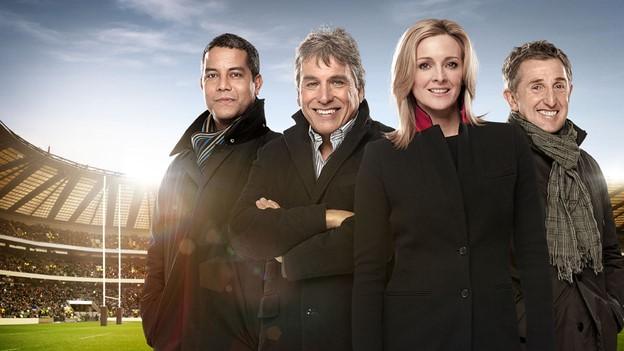Six Nations: Will Georgia always be on the outside looking in?
- Published
- comments
Should Georgia be in the Six Nations?
Six Nations: Round 2 |
|---|
Dates: 11-12 Feb Coverage: Live across BBC One, BBC Radio 5 live, BBC Red Button, Connected TV and online. (full coverage details) |
Worcester Warriors are the epitome of a modern, professional rugby union club.
In a purpose built stadium, near a motorway, players from a dozen different nations train on an artificial pitch so new it uses the very latest organic infill (carbon neutral, derived from defibration of woody plants, according to the Italian manufacturer).
Between the New Zealanders, South Africans, Pacific Islanders and Englishmen there is Jaba Bregvadze. He is a Georgian rugby player. A hooker with 40 caps for his country and club career which took him to one of Europe's most famous sides, Toulouse, before Worcester.
But his rugby education was in Tblisi and he knows exactly what the sport means to Georgia.
''The tradition of Georgians is physical. Unfortunately, we had a lot of wars. Rugby is the same, like war. You are playing against someone, maybe he is your friend but for 80 minutes he is your enemy," he says.
"You must hurt him, but not give penalties, there are some rules (he laughs). I think this is the Georgian tradition. That's why the scrum is easier for us, driving the mauls is easier for us, we are playing with the heart, with big heart but everyone knows our skills are not in the top, that is the Georgian tradition.''
Six Nations Remix: Schoolboys and 'Salt Bae'
That ethos sits with the legend of Lelo - a Georgian folk sport which is the source of the national team's nickname - which pitted village against village battling over a ball in a field. Georgia has a unique version of rugby history.
The problem, though, is the future. How to develop those missing skills?
Results suggest Georgia have outgrown their status. They've won the European Nations Cup - the Six Nations 'B' competition, now renamed the Rugby Europe Championship, external - for each of the past six seasons.
At the last World Cup they won two games and defended bravely in defeat against New Zealand. As the Six Nations began they were officially world ranked 12th, that's one place above Italy.
Promotion to - and relegation from - the Six Nations has been ruled out by chief executive John Feehan, at least in the near future. In reality Georgia are well aware of that position, and as much as they would like to be in the tournament they have another idea.
The head of operations at Georgia's Rugby Union told BBC Sport he would like to see a "show match" between the bottom-placed team in the Six Nations and the Rugby Europe winner. That team, for almost all of the past decade, has been Georgia.
The Georgians suggest this match would take place on a neutral venue. It would not be a promotion relegation game. Just a match that - as Georgia puts it - "really can attract big interest".
It was a suggestion I put to John Feehan, the Six Nations chief executive.
''I'm sure it would be interesting but we've got to look at it from the integrity of our competition and what's good for us and not necessarily what's good for Georgia," he told BBC Sport.
"And I don't mean that in any nasty way - other than to say that my role is to make sure that the six unions which are involved in the Six Nations maintain the credibility of the tournament. And a game like that could involve all sorts of speculation that wouldn't necessarily be helpful.''
Since they joined in 2000, Italy have finished bottom of the Six Nations table on 11 occasions - and they were well beaten at home by Wales in their opening game in this year's championship.
But in individual matches they have beaten all the other nations teams, apart from England. Mr Feehan's standpoint is to support Italy's status in the competition. But he does admit to some disappointment.
''Have Italy progressed as much as we'd like? Probably not," he said.
"But the reality is; it's very hard. And part of that is that everybody else's standards have improved as well. It's not like the others have stood still and Italy hasn't. Italy have developed and made progress, but it's a relative progress, if you like.
"Are they going to catch up? Of course they are. And they are in the process of doing that and [new Italy boss] Conor O'Shea's going to be a very important part of that happening.''
Highlights: Scotland 43-16 Georgia
This will be O'Shea's first Six Nations tournament in charge of Italy. He comes with a strong reputation in the game, both as a player for Ireland and a coach in English club rugby. He understands there is a need for developing nations to have some meaningful incentive.
He told me: ''We can't let Italian rugby wither - Italian rugby needs to be supported - we need the extra investment in Italian rugby because Italian rugby has a history and a tradition, like Romanian rugby, if you think back to the 1970s in Romania [when they were beating the likes of France]. So we have to nurture all teams, all nations.
"I look around at the young players and the youth system in Italian rugby - there are more players in Italy than there are in Wales - lots of young players. Do you want to lose that? No, you don't, you have to incentivise it.
"Do we expand? Do we have another system? But by the time those decisions are made be careful what you wish for, because it might not be Italy who are bottom of the pile.''
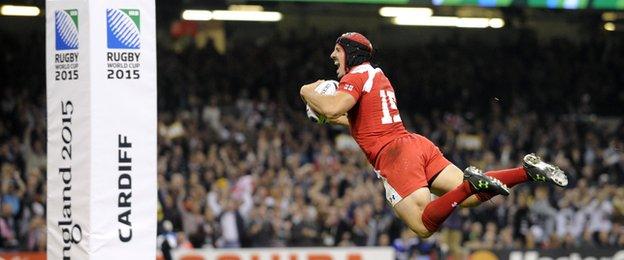
Georgia - here scoring against New Zealand at the 2015 World Cup through Beka Tsiklauri - have qualified automatically for the 2019 edition in Japan
Later this year Georgia will host the under-20's World Cup for the first time. Jaba Bregvadze believes interest in the sport there has grown significantly.
Games against Russia - which carry enormous political and cultural significance - attract sell-out crowds of 50,000 in Tblisi. But Bregvadze says tens of thousands of fans are now coming to watch them play other sides too.
''At the weekend there is not too much happening at Georgia. When you are winning a game at the weekend, the people are coming, it's like a positive atmosphere," he said.
"The people are hearing something new; the Georgia team wins by 20 points or 40 points or five points, it doesn't matter. I think they're getting proud of their team and happy. I think it's a big thing for the whole country.''
In November 2016, Georgia played Scotland in Kilmarnock and were well beaten 43-16. But Bregvadze desperately wants more exposure to these kind of games.
''It would be great if we had the chance to play in the Six Nations but the most important thing for us is to play as much against the good teams, the better teams than we are, because if you want to grow as a team, you need to play against better teams than you are.''
The Georgian rugby union has suggested to BBC Sport that, if they are barred from the Six Nations indefinitely, they will be "looking to participate in other competitions as a franchise, whatever chance there will be we will explore this possibility".
The prospect of relegation adds a crucial dimension to many sporting competitions, it is exactly the fate Worcester are trying desperately to avoid in English rugby's Premiership this season.
The Six Nations may have ruled it out, for now. But if Georgia keep winning, if their crowds keep coming and if their players keep being hired in England and France then their presence will remain whilst the Six Nations carries on without them.
More from rugby: |
|---|
Six Nations fixtures and Women's Six Nations fixtures |
For the latest rugby union news, follow @bbcrugbyunion, external on Twitter |
- Published7 February 2017
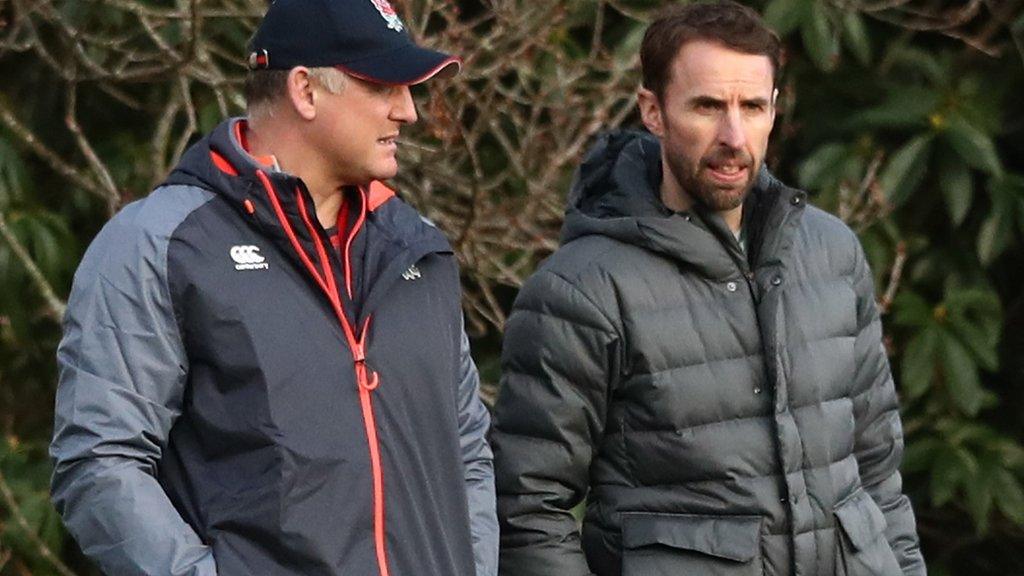
- Published7 February 2017
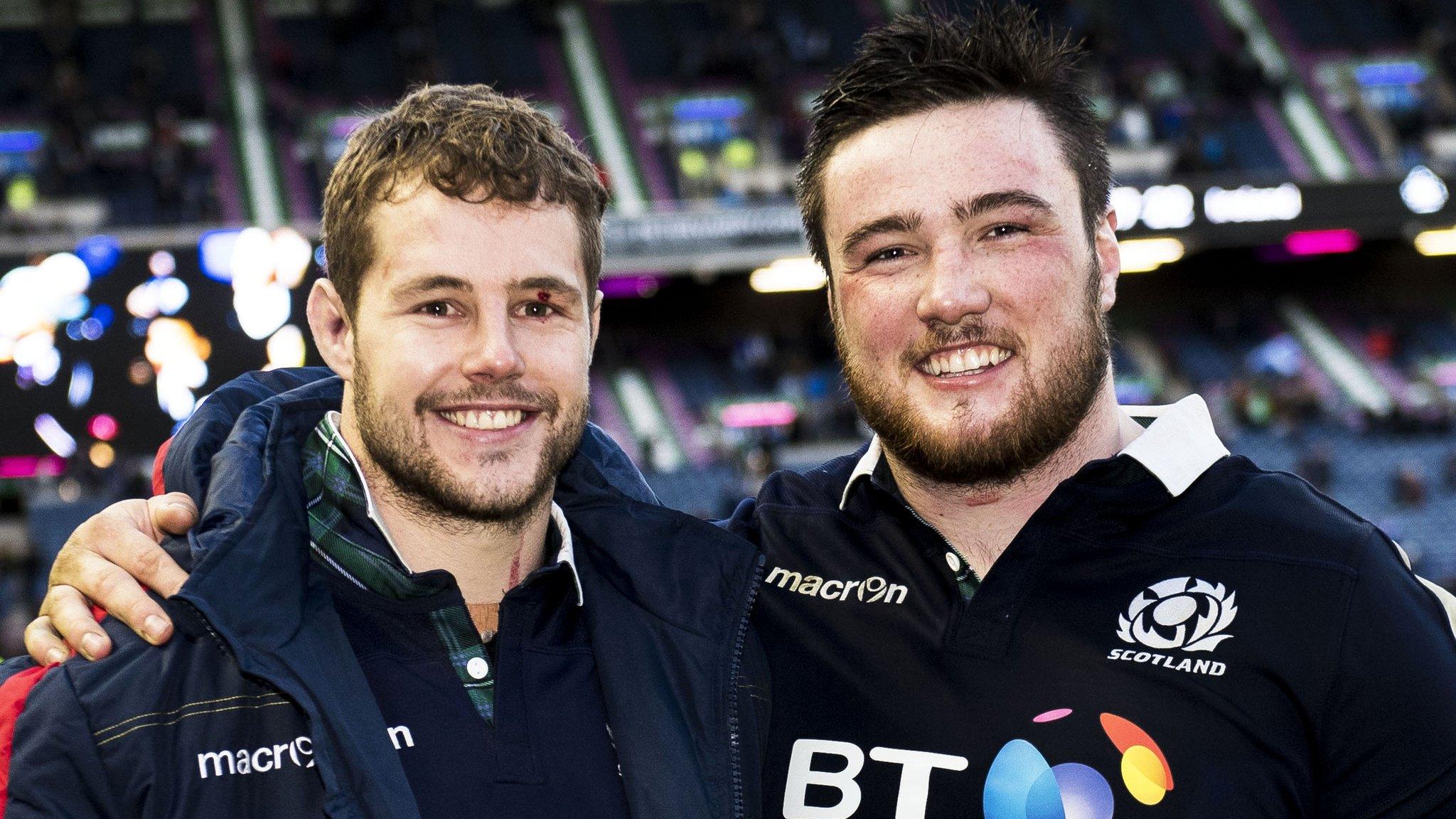
- Published4 February 2017
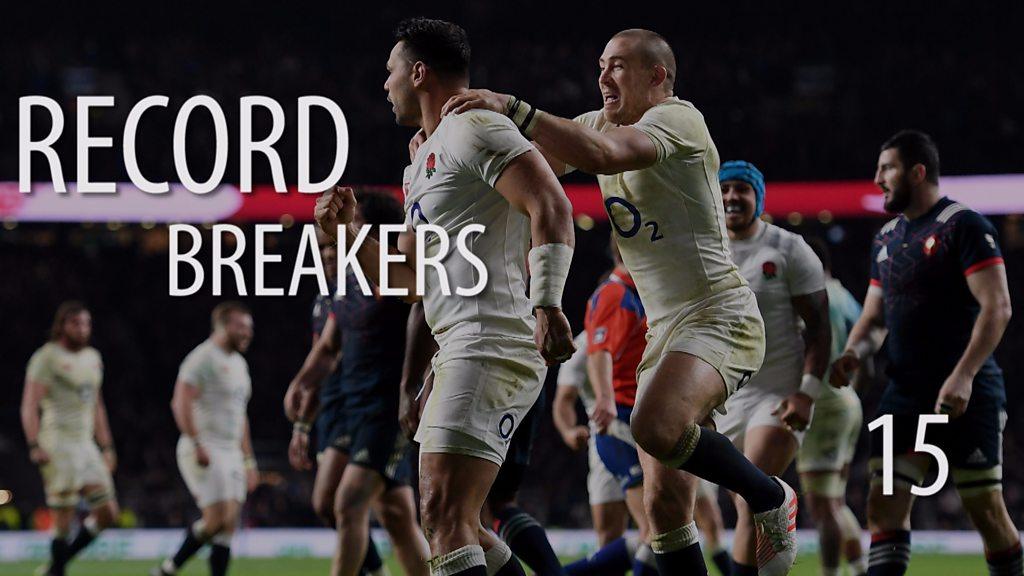
- Published4 February 2017
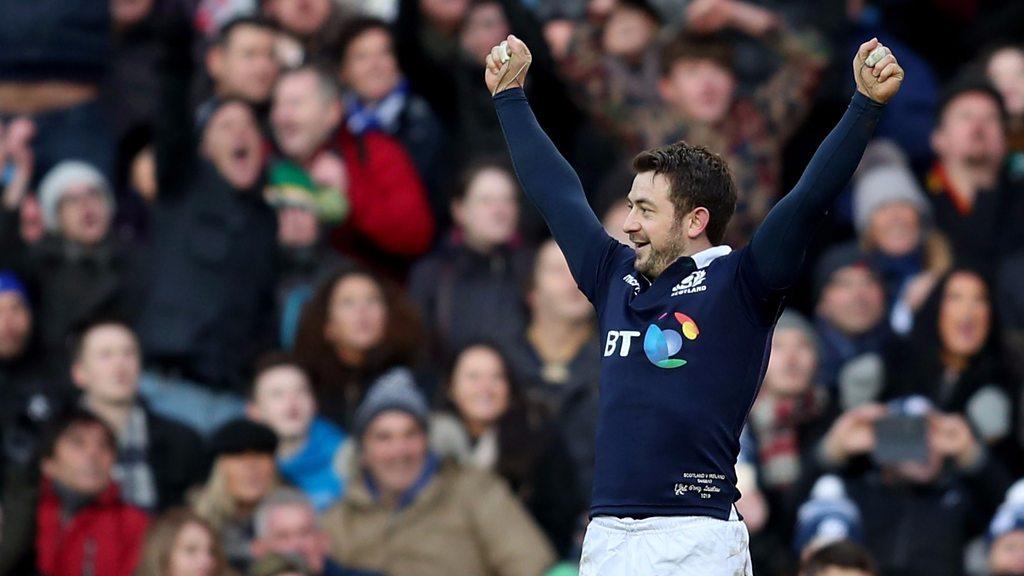
- Published17 March 2017
